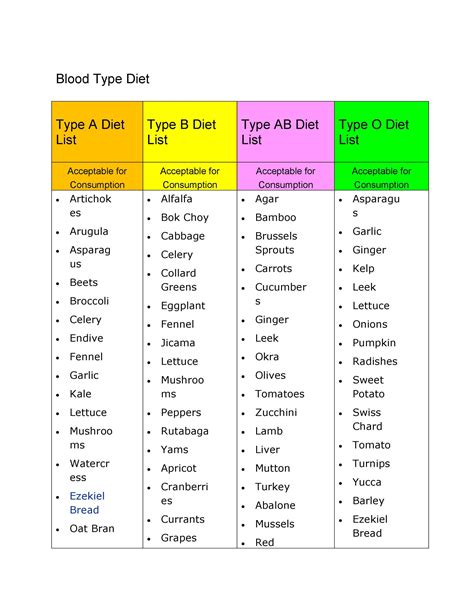Discover the benefits, foods allowed, and tips for transitioning to Ovo Vegetarianism. Understand the challenges and benefits of this diet.
Understanding Ovo Vegetarianism
Contents
Ovo vegetarianism is a type of plant-based diet that includes eggs but excludes any other animal products. This means that ovo vegetarians do not consume meat, fish, dairy, or any other animal-derived ingredients, but they do incorporate eggs into their meals. This specific dietary choice is often made for ethical, environmental, or health reasons, and it can offer a range of benefits for individuals who adhere to this lifestyle.
One of the main reasons people choose to follow an ovo vegetarian diet is for ethical considerations. By avoiding the consumption of meat, ovo vegetarians can actively reduce the demand for animal products and support more sustainable and humane farming practices. Additionally, many ovo vegetarians believe that eliminating meat from their diets aligns with their personal values and helps to minimize animal suffering.
From a health perspective, ovo vegetarianism can provide a number of benefits. By focusing on plant-based foods and incorporating eggs as a source of protein and nutrients, individuals can lower their risk of certain health conditions, including heart disease, high blood pressure, and obesity. The emphasis on whole, nutrient-dense foods can also support overall well-being and contribute to a balanced diet.
While there are numerous advantages to following an ovo vegetarian diet, it’s important to be aware of the potential challenges as well. For instance, individuals may need to pay closer attention to their intake of certain nutrients, such as iron, vitamin B12, and omega-3 fatty acids, to ensure that they are meeting their dietary needs. Additionally, it may require some careful planning and consideration to navigate social situations and dining out while following an ovo vegetarian lifestyle.
Ultimately, understanding ovo vegetarianism involves recognizing the reasons behind this dietary choice, acknowledging the potential benefits and challenges, and considering how to approach this lifestyle in a way that aligns with individual values and goals.
Benefits of Ovo Vegetarian Diet
Ovo vegetarian diet is a plant-based diet that includes eggs as the only source of animal protein. This dietary choice offers several benefits for both personal health and the environment.
Firstly, the nutritional benefits of including eggs in a vegetarian diet are significant. Eggs are a high-quality source of protein, containing all nine essential amino acids. They also provide essential nutrients such as Vitamin B12, which is often lacking in a vegetarian diet. Additionally, eggs are a rich source of choline, which supports brain and liver health.
Moreover, the environmental benefits of ovo vegetarianism are noteworthy. By choosing to include eggs in their diet, individuals can reduce their reliance on other animal products, therefore decreasing the environmental impact of their food choices. This can lead to a decreased demand for meat production and the associated resources required, contributing to a more sustainable food system.
Furthermore, the flexibility that comes with an ovo vegetarian diet is another advantage. Eggs are a versatile ingredient that can be incorporated into a wide range of meals, making it easier for individuals to adhere to their vegetarian diet while still enjoying a varied and satisfying menu. This flexibility can also make it easier for individuals to maintain a balanced and nutritious diet.
In conclusion, the ovo vegetarian diet offers a range of benefits, from the nutritional value of eggs to the environmental impact of reducing reliance on other animal products. This dietary choice can provide individuals with a healthy, sustainable, and flexible approach to vegetarianism.
Foods Allowed in Ovo Vegetarianism
Foods Allowed in Ovo Vegetarianism
Foods Allowed in Ovo Vegetarianism
An ovo-vegetarian diet includes all vegetarian foods, but also includes eggs and egg products. This diet is a great option for those who want to eliminate meat from their diet but still want to consume animal products like eggs. Ovo-vegetarians can enjoy a wide variety of foods, including fruits, vegetables, grains, legumes, dairy, and of course, eggs.
Fruits: Ovo-vegetarians can enjoy a wide variety of fruits, including apples, bananas, berries, citrus fruits, and more. Fruits are a great source of essential vitamins and minerals and can be enjoyed fresh, frozen, or dried.
Vegetables: Ovo-vegetarians can include all types of vegetables in their diet, such as leafy greens, broccoli, cauliflower, bell peppers, and carrots. Vegetables can be enjoyed raw, steamed, roasted, or sautéed and provide essential nutrients like fiber and antioxidants.
Grains and legumes: Ovo-vegetarians can incorporate a variety of grains and legumes into their diet, including quinoa, brown rice, oats, lentils, and chickpeas. These foods are high in protein, fiber, and other essential nutrients, making them a great addition to a healthy ovo-vegetarian diet.
Dairy and eggs: Ovo-vegetarians can consume dairy products such as milk, cheese, and yogurt, as well as eggs and egg products. These foods are a good source of protein, calcium, and other essential nutrients, which are important for overall health.
Challenges of Ovo Vegetarian Diet
One of the main challenges of following an Ovo Vegetarian diet is the potential for nutrient deficiencies. Since Ovo Vegetarians do not consume any meat or dairy products, they may struggle to get enough protein, calcium, and certain vitamins and minerals in their diet. This can be especially challenging for individuals who are not careful about planning their meals and ensuring they are getting a balanced array of nutrients.
Another challenge of the Ovo Vegetarian diet is the lack of convenience. Since many restaurants and fast food options primarily serve meals based on meat and dairy products, Ovo Vegetarians may find it difficult to find suitable options when eating out. This can make social situations and travel more challenging for individuals following this diet.
Meal planning and preparation can also be a significant challenge for Ovo Vegetarians. Without the convenience of grabbing pre-made meals or relying on simple, traditional recipes, Ovo Vegetarians may need to put in more effort to ensure their meals are balanced and nutritious. This can be time-consuming and may require individuals to experiment with new foods and cooking techniques.
Furthermore, Ovo Vegetarianism can lead to potential social challenges. Since this diet is less common than traditional vegetarian or omnivorous diets, individuals may face criticism or lack of understanding from friends, family, and peers. This can make it challenging to stick to the diet and may lead to feelings of isolation or frustration.
Finally, another challenge of following an Ovo Vegetarian diet is the potential for limited food options. Since this diet excludes all animal products except for eggs, individuals may struggle to find variety in their meals and may feel restricted in their food choices. This can lead to boredom with the diet and may make it more difficult to stick to in the long term.
Tips for Transitioning to Ovo Vegetarianism
Transitioning to an Ovo Vegetarian diet can be challenging, but with the right tips, it can be a smooth process. One of the first things to consider when making the switch is to educate yourself on the foods that are allowed in an Ovo Vegetarian diet. As an Ovo Vegetarian, you can consume eggs and dairy products, but you will need to eliminate meat, poultry, and fish from your diet.
Another important tip for transitioning to Ovo Vegetarianism is to gradually incorporate more plant-based proteins into your meals. This can include foods such as quinoa, lentils, and beans to ensure you are getting enough protein in your diet.
It is also essential to plan your meals in advance and experiment with new vegetarian recipes to keep things interesting. This can help prevent any feelings of deprivation and make the transition more enjoyable. Additionally, seeking support from other Ovo Vegetarians or individuals following a similar diet can provide valuable tips and advice.
When transitioning to an Ovo Vegetarian diet, it’s important to be mindful of any potential nutritional deficiencies. You may need to discuss supplementation with a healthcare professional to ensure you are meeting your nutritional requirements. Lastly, staying patient with the process and being open to trying new foods can make the transition to Ovo Vegetarianism more sustainable in the long run.












